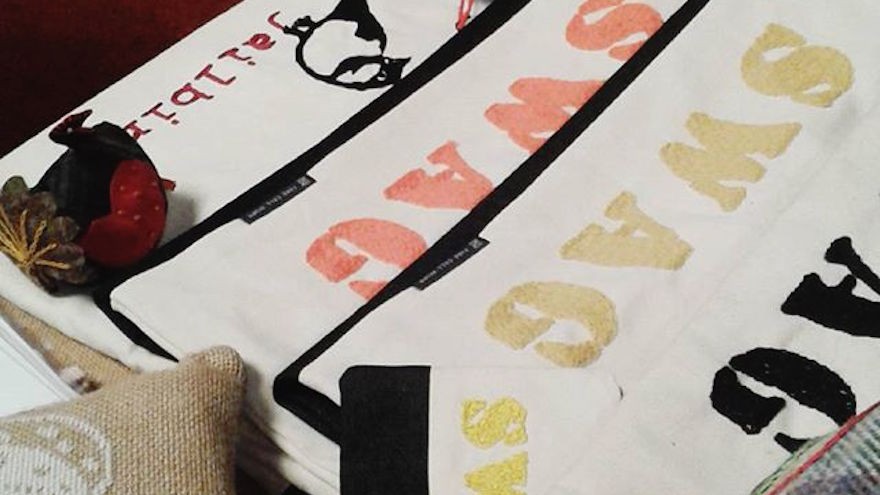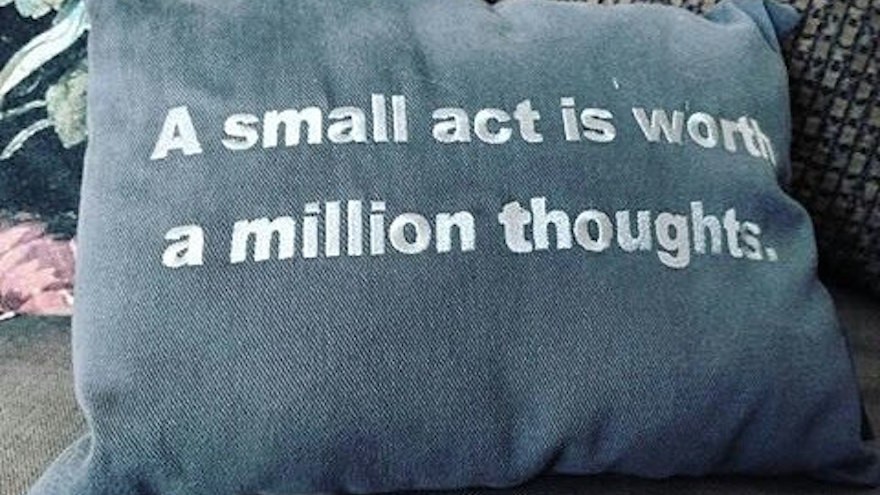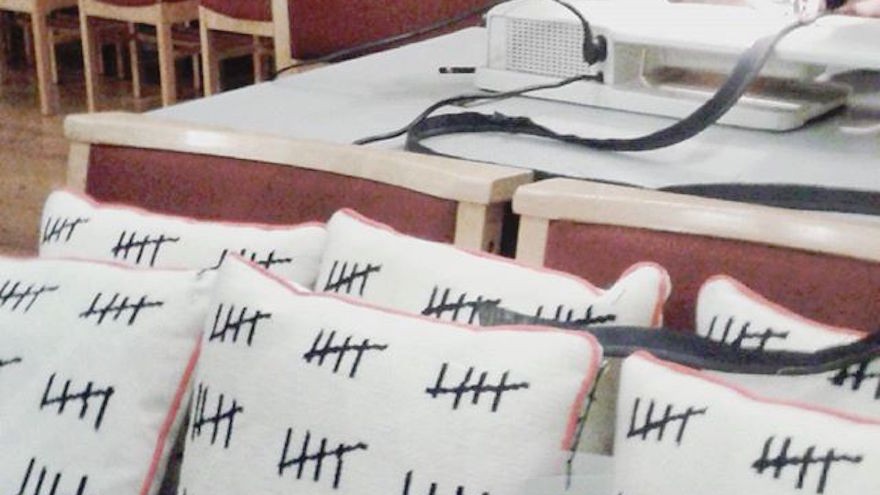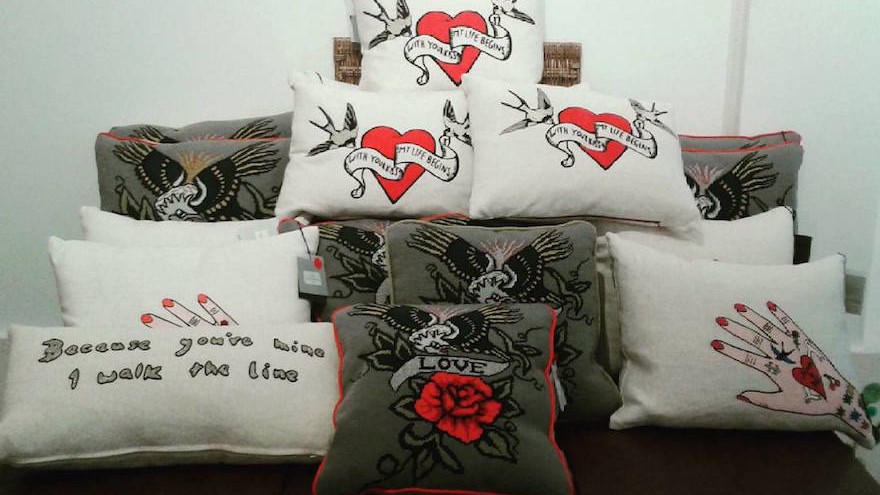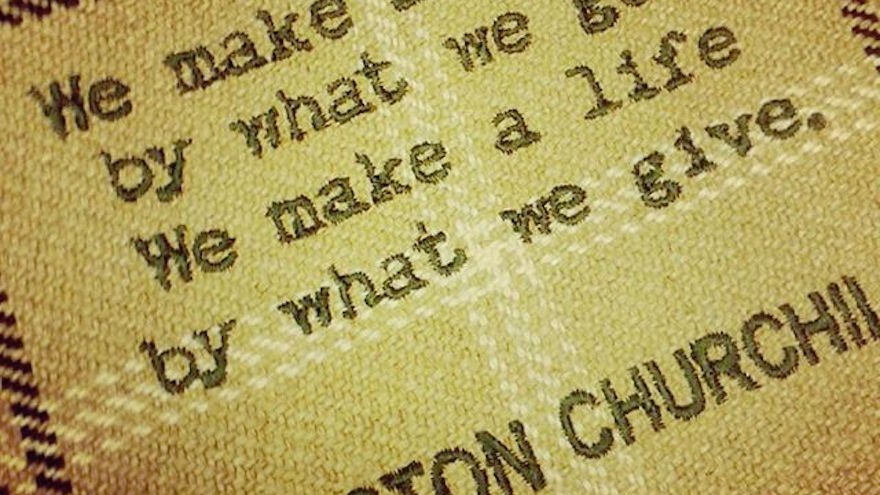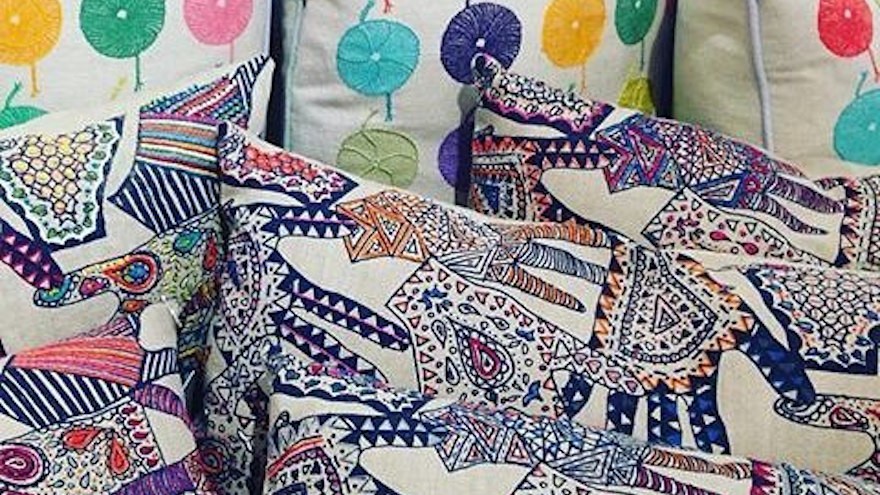In the 1960s, Anne Tree visited HMP Holloway women's prison in the United Kingdom and found that there was too much time wasted among its prisoners. A philanthropist at heart, Tree decided to merge her personal creative pursuits - needlework - with her desire to do good. She founded Fine Cell Work, an initiative that trains prisoners in paid, skilled, creative needlework to foster hope, discipline and self-esteem.
Since its launch in 1997, Fine Cell Work has given hundreds of prisoners purpose and an income through embroidery. Today, Fine Cell Work has 60 volunteers training over 400 prisoners in 29 prisons across England, Scotland and Wales and prison systems in other countries have expressed interest in starting similar schemes.
The social enterprise has found success in both male and female prisons. In one testimonial, one of Fine Cell’s volunteers recounts the story of Sylvester, a burly man who was attracted to the embroidery class by the prospect of receiving an income. Although his approach to the class was half-hearted at first, as his skills grew so did his enthusiasm and focus. He was soon able to quilt intricate patterns. His work was often commissioned and sold and he was able to enter and receive accolades from art competitions.
In another testimony, Patrick, a prisoner, recounts his experience with machine embroidery, a skill set that that has enabled him to find joy in his confines. “The thing that I mostly get from working in the Fine Cell workshop is satisfaction seeing the finished article and knowing that the things we make here are good enough to be sold outside the prison and will end up in someone’s home,” he was quoted as saying.
The prisoners make anything from quilts and cushions to bags and wall-hangings. The prisoners are paid for their work, which is then sold around the world. Over £63,000 was collectively earned by all Fine Cell’s stitchers in 2013 for the sale of around 3 000 pieces. Prisoners earn approximately 37 per cent of the sale price of each piece.
Programmes such as Fine Cell Work have proven to be beneficial to the prisoners and public alike. The chance to gain a real-world skill helps prisoners contribute to society once they’ve been released, lessening the chance that they will reoffend.
“Craftwork in prison can help prisoners discover a more constructive and reflective side to themselves,” wrote the initiative. “They can learn new skills and help support their families with the money they earn. Fine Cell Work aims to broaden horizons beyond the prison walls, helping inmates to make a contribution by connecting them to wider society and giving them a brighter outlook on their future.”

